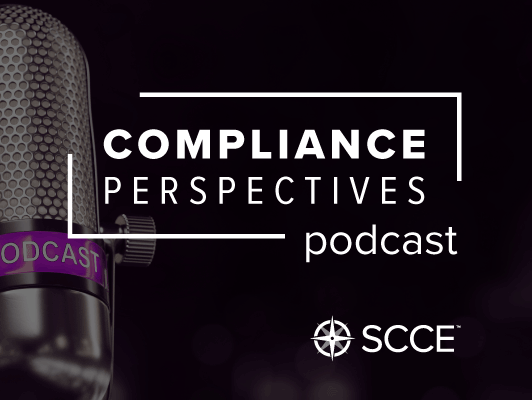Podcast: Play in new window | Download (Duration: 12:56 — 11.9MB)
Subscribe: Apple Podcasts | Email | TuneIn | RSS
Corporate anti-corruption efforts are a constant struggle, with compliance teams always searching for new approaches that can mitigate this very dangerous risk.
Jonathan Rusch, an Adjunct Professor at Georgetown University Law Center and American University Washington College of Law, sees an opportunity in technology. He is the author of the Coalition for Integrity’s guidance document Using Machine Learning for Anti-Corruption Risk and Compliance.
In this podcast he shares that in other areas, such as fraud and anti-money laundering (AML), some kind of Artificial Intelligence (AI), whether rules written by programmers or machine learning, has proven productive. The Coalition for Integrity wanted to know if a similar solution could work for anti-corruption efforts.
In his and their research three successful implementations were found: AB InBev, Microsoft and Alexion Pharmaceuticals.
When embarking on an effort in this area, he recommends first assessing what approach makes the most sense. For a smaller organization, a simpler, rules-based approach to automation is likely more appropriate.
For larger organizations, he suggests building a business case that encompasses what needs to be done, the costs, the ongoing staffing requirements and the overall anticipated ROI.
If machine-based learning could be worthwhile for your organization, he advises creating a clear definition of what you want the solution to address. From there it’s time to build your data set, work with the data and train the machine learning model. And, importantly, it’s also time to make sure the model is generating predictions that are accurate and reliable. Often at the first stages it does not.
When it comes to the data set, he notes that there may be more data within the enterprise than is initially thought. Data to consider incorporating into the effort could include spending, sales, accounts receivable, third-party contracts and third-party transactions.
Intrigued? Listen in to expand your learning about machine learning.


